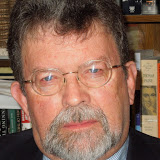
Vladimir Putin - 2006
(Image by (From Wikimedia) Russian Presidential Press and Information Office, Author: Russian Presidential Press and Information Office) Details Source DMCA
A Review of Frontline Ukraine, by Richard Sakwa
February 20, 2015, marks the one-year anniversary of the heinous slaughter of protesters and police by neo-Nazi snipers who transformed a relatively peaceful protest against Ukraine's democratically elected president, Viktor Yanukovych, into a violent anti-Russia coup. To this day, the illegitimate regime ruling in Kiev has done virtually nothing to bring their sniper allies to justice.
Many political actors in the West, including the Obama administration's CIA and State Department, as well as members of the European Union were accomplices in the anti-Russia coup. Foolishly, they supported a coup in Kiev that provoked anti-Kiev mobilizations among Russians living in Crimea and eastern Ukraine. Thus they recklessly courted the civil war that ravages Ukraine today, as well as the justly deserved devastating defeats suffered by coup regime forces in Ilovaisk and Debaltseve.
Nevertheless, like thieves caught in broad daylight, the Obama administration, the EU, and NATO have attempted to deflect the blame on to Russia. Russophobes within the West's think tanks and mainstream news media have embraced their lies. Thus, so has Boobus Americanus. Consequently, the civil war that now threatens to dismember Ukraine also threatens to spark World War III.
Why? Because, Russia's TV news has been equally successful in convincing the overwhelming majority of Russians that the U.S. provoked regime change in Kiev in order to weaken Russian influence in the region. Consequently, support for President Putin and anti-American sentiment have grown enormously.
Fortunately -- for readers who suspect that the relentless Western demonization of Russia and its leader, President Vladimir Putin, is a crudely hysterical, self-serving cover for the relentless U.S., EU, and NATO expansion that, finally, has met its Waterloo in Ukraine -- we now have Richard Sakwa's detailed and thoughtful new book, Frontline Ukraine: Crisis in the Borderlands.
According to Professor Sakwa, the crisis had its origins in: (1) "structural contradictions in the international system" (p. 5), and (2) "the profound tensions in the Ukrainian nation and state-building processes since Ukraine achieved independence in 1991" (p. 2). Russia has played a secondary role in both, but largely in reaction to steps taken in Washington, Brussels and Kiev.
Professor Sakwa correctly claims, "The groundwork of the Ukrainian conflict has been latent for at least two decades. It was laid by the asymmetrical end of the Cold War, in which one side declared victory while the other was certainly not ready to 'embrace defeat'" (Ibid). He might have added that America's declaration of victory, called "triumphalism," is just another strain of our relentless and obnoxious boasting, called "American Exceptionalism," which dates back, at least, to the post-Revolutionary War period. Then, victory over the British moved the president of Yale College, Ezra Stiles, to proclaim America to be "God's New Israel" and to compare George Washington to "Joshua commanding the armies of the Children of Israel and leading them into the Promised Land." [Richard M. Gamble, The War for Righteousness: Progressive Christianity, the Great War, and the Rise of the Messianic Nation, pp. 10--11]
Triumphalism, as politics, reared its ugly head when America's conservatives, with the support of the military-industrial complex, attempted to credit President Reagan (especially his military buildup) for the collapse of the Soviet Union. The inconvenient fact that Reagan left office in January, 1989, while the collapse did not occur until almost three years later, in late December, 1991, did nothing to temper their claim. More difficult to gloss over, however, was the scathing criticism of Reagan made by conservatives, just as he was leaving office.
It was then that William Safire, Howard Phillips and George Will claimed that Reagan had been duped by Mikhail Gorbachev. Mr. Will, for example, went so far as to assert: "Reagan has accelerated the moral disarmament of the West -- actual disarmament will follow -- by elevating wishful thinking to the status of political philosophy" (See Francis Fitzgerald, Way Out There in the Blue: Reagan, Star Wars and the End of the Cold War, p. 467).
The triumphalists also needed to bury the contrary assertions made by Reagan's own Ambassador to the Soviet Union, Jack F. Matlock. Ambassador Matlock denied that Reagan sought either the disintegration of Communist rule or the collapse of the Soviet Union.
But, the most fateful failure of the triumphalists, was their refusal to recognize, let alone credit, Mikhail Gorbachev for the conceptual breakthroughs that led to the peaceful conclusion of the Cold War. For example, it was Gorbachev who advanced the concept of "mutual security." His foreign policy advisor, Anatoly Chernyaev, explained "mutual security" as follows: "We are by no means talking about weakening our security. But at the same time we have to realize that if our proposals imply weakening U.S. security, then there won't be any agreement." (See Walter C. Uhler, "Gorbachev's Revolution," The Nation, Dec. 31, 2001, p. 44)
That conceptual failure had fateful policy implications for post-Cold War Europe. After all, when the West commenced its relentless expansion of the European Union and NATO, it dismissively lectured Russia that such expansion was no threat to Russia -- even if the Russian leaders thought otherwise!
In addition to displaying insufferable arrogance, the West's dismissive lectures demonstrated that the triumphalists were in no mood to operate according to Gorbachev's concept of mutual security. They were still playing by zero-sum Cold War ground rules that, in their closed minds, had won the Cold War. But, by doing so, they virtually guaranteed that Russia eventually would reintroduce such Cold War ground rules as well.
(Note: You can view every article as one long page if you sign up as an Advocate Member, or higher).





